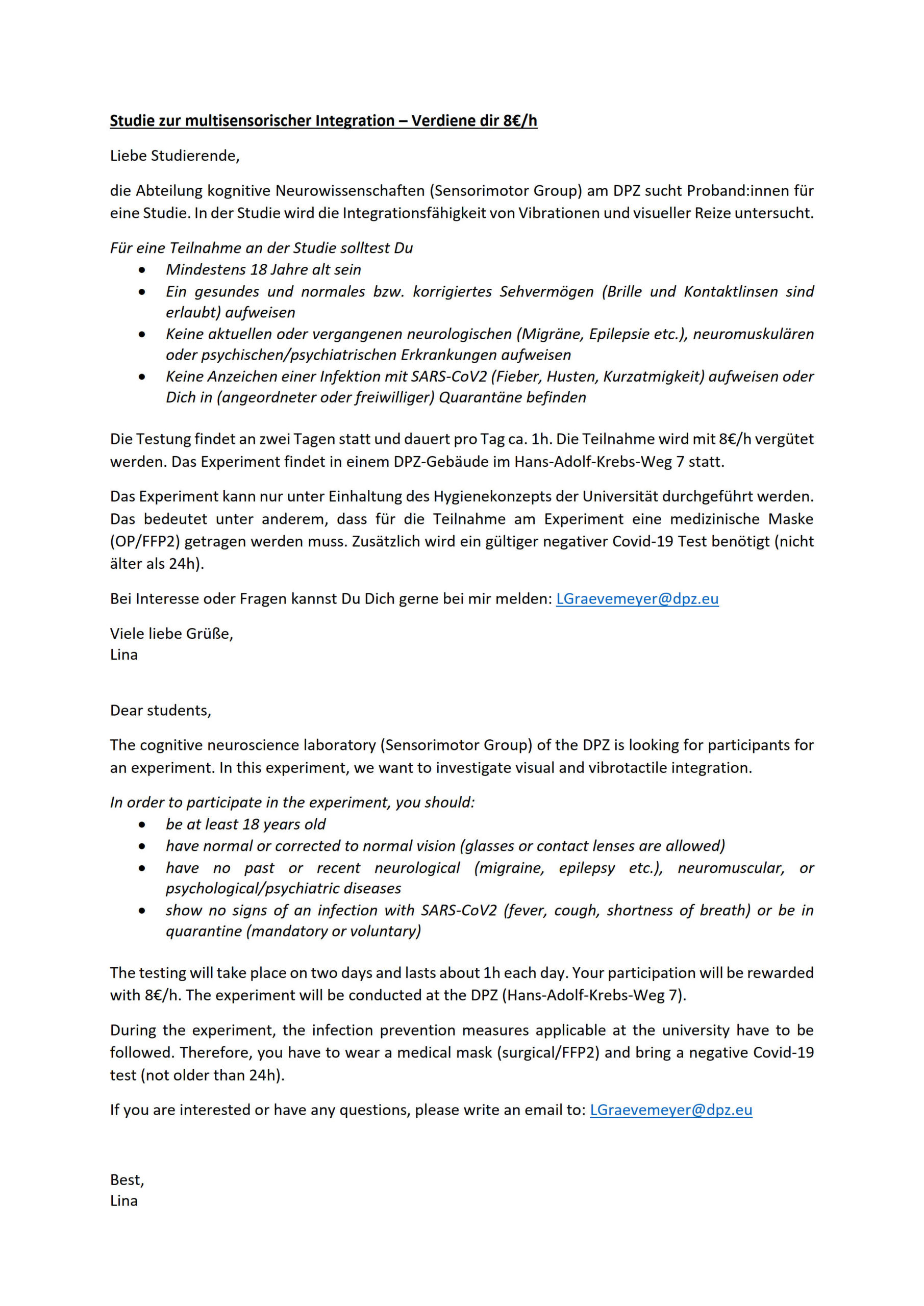Das Prüfungsamt stellt eine Äquivalenzbescheinigung zu den aktualisierten Modulen für Masterbewerbungen an anderen Universitäten (speziell zum Master Klinische Psychologie und Psychotherapie) als Download zur Verfügung: Äquivalenzbescheinigung
Studienbüro: Urlaub
Das Studienbüro ist am Freitag, den 14. Mai nicht besetzt.
Einladung zur Konferenz
Dear colleagues,
After the great interest in the long weekend conferences for University students from all over Europe held in the last years (2016-2020), the European Psychoanalytical Federation continues in 2021 with the sixth conference:
https://www.epf-fep.eu/page/30-9-2-10-2021-body-psychoanalytic-perspectives-6th-epcus
For all students and recent graduates in Europe who want to know more about the psychoanalytic perspectives of body: theoretical, clinical , developmental and as a source of art and creativity.
A 3-day trip through many aspects of the body: from old times to modern times, taking into account the impact on the clinic due to Covid 19 pandemic. From the developmental perspective of the developing body, to the developmental disturbances in expressing mental content leading to illness in the psychosomatic situation. And, last but not least, from embodied memory in the art of Giacometti.
Full of presentations, clinical examples, artistic inserts and discussion.
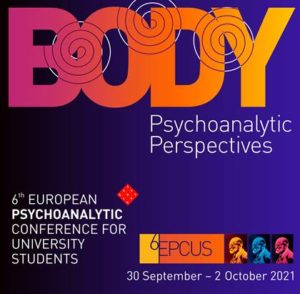
All presentations will be in English.
Conference Venue: House of the European Psychoanalytical Federation in Brussels, Belgium. If necesary, we will provide an online-conference.
Date: Thursday, 30th September till Saturday, 2nd of October 2021
Costs: Euro 35
Detailed information and registration form will be available in June 2021.
The number of participants is limited, so register as soon as possible, not later than September 15th.
For further information, please contact Jasminka Šuljagić: jasminkasuljagic@gmail.com, Alex Janssen: a.m.janssen@xs4all.nl, Martin Teising: teising@t-online.de or Mercedes Puchol: mpuchol@futurnet.es
Follow @epcus on Facebook: https://www.facebook.com/epcus/
Click here to download the EPCUS brochure: https://www.epf-fep.eu/Files/media/6000/6180/epcus-brochure.pdf
Welcome!
Angebot des Gesundheitszentrums

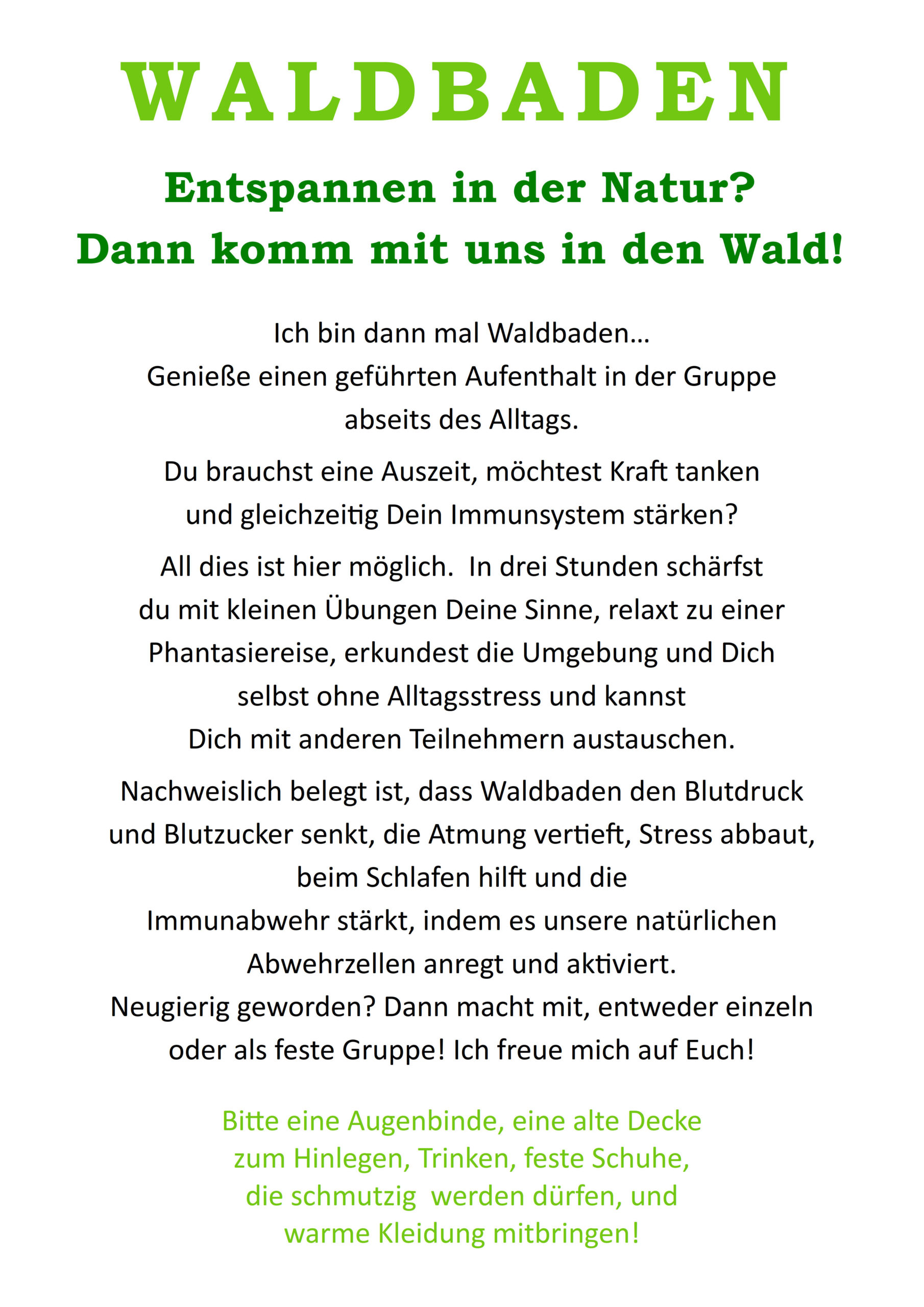
Studienteilnehmer*innen gesucht
Probanden gesucht
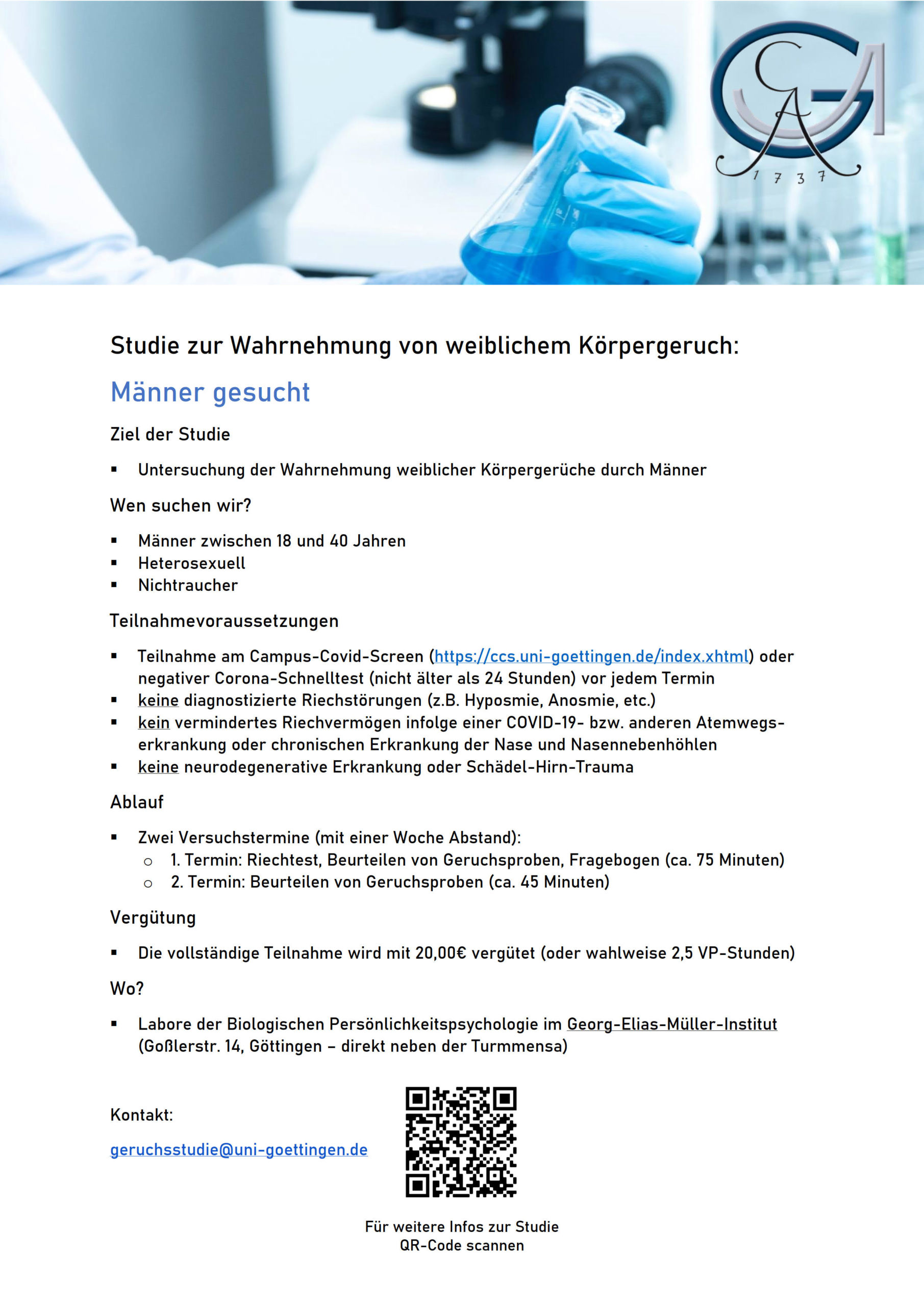
Wenn du teilnehmen möchtest, dann trage dich unter folgendem Link in ein für dich passendes Termin-Set ein. Beide Termine sind aufeinander abgestimmt, daher sind nur die angegebenen Kombinationen möglich: https://terminplaner4.dfn.de/adglvDACf4gIytQ9
Praktikant*innen gesucht

Bachelor: Modul B.Psy.303 Klausureinsicht
Die Einsicht zu den Klausuren für das Modul „B.Psy.304 Persönlichkeitspsychologisches Forschen“ erfolgt ausschließlich mit vorheriger Terminvergabe durch Frau Botzet am:
Masterarbeit zu vergeben
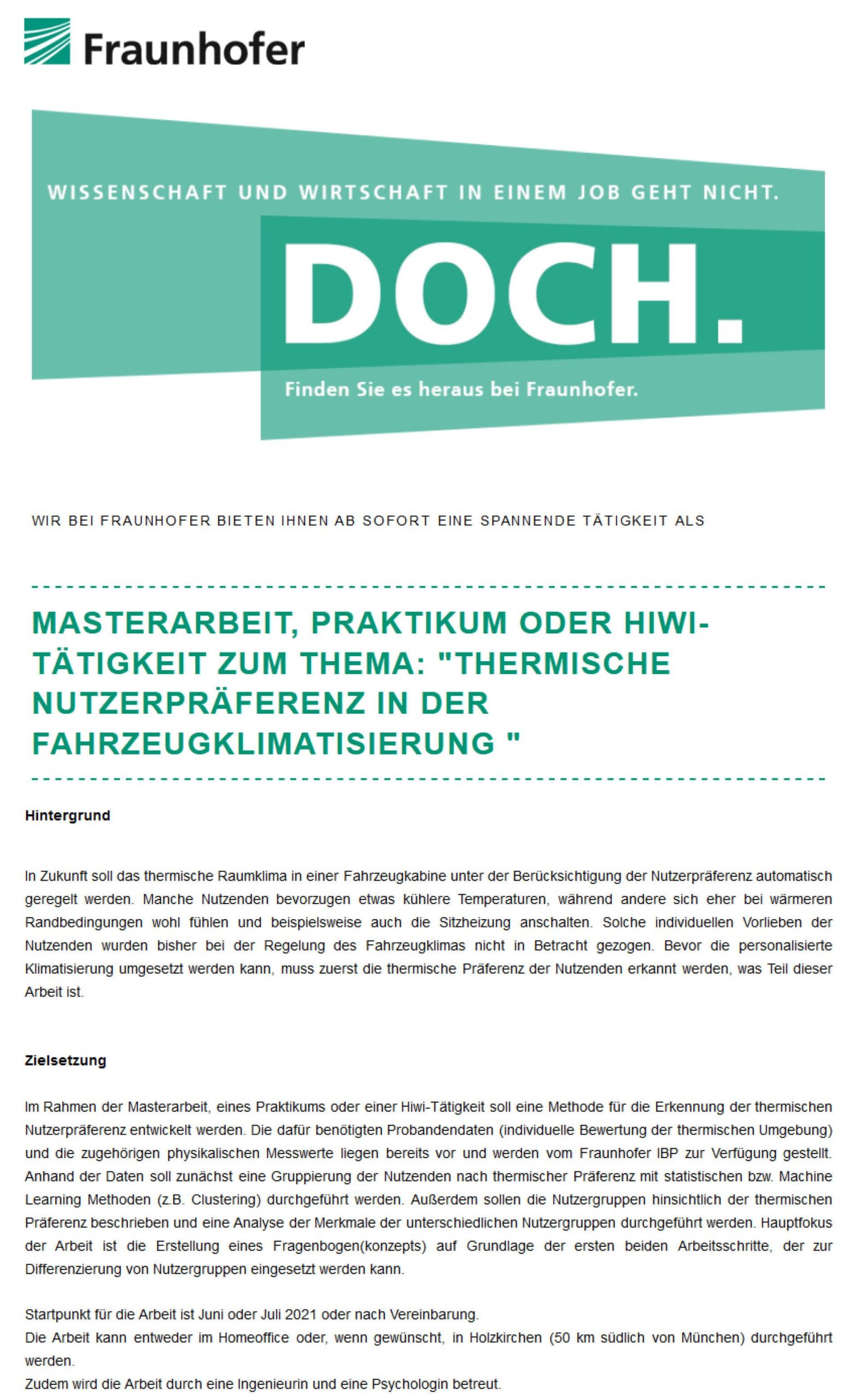
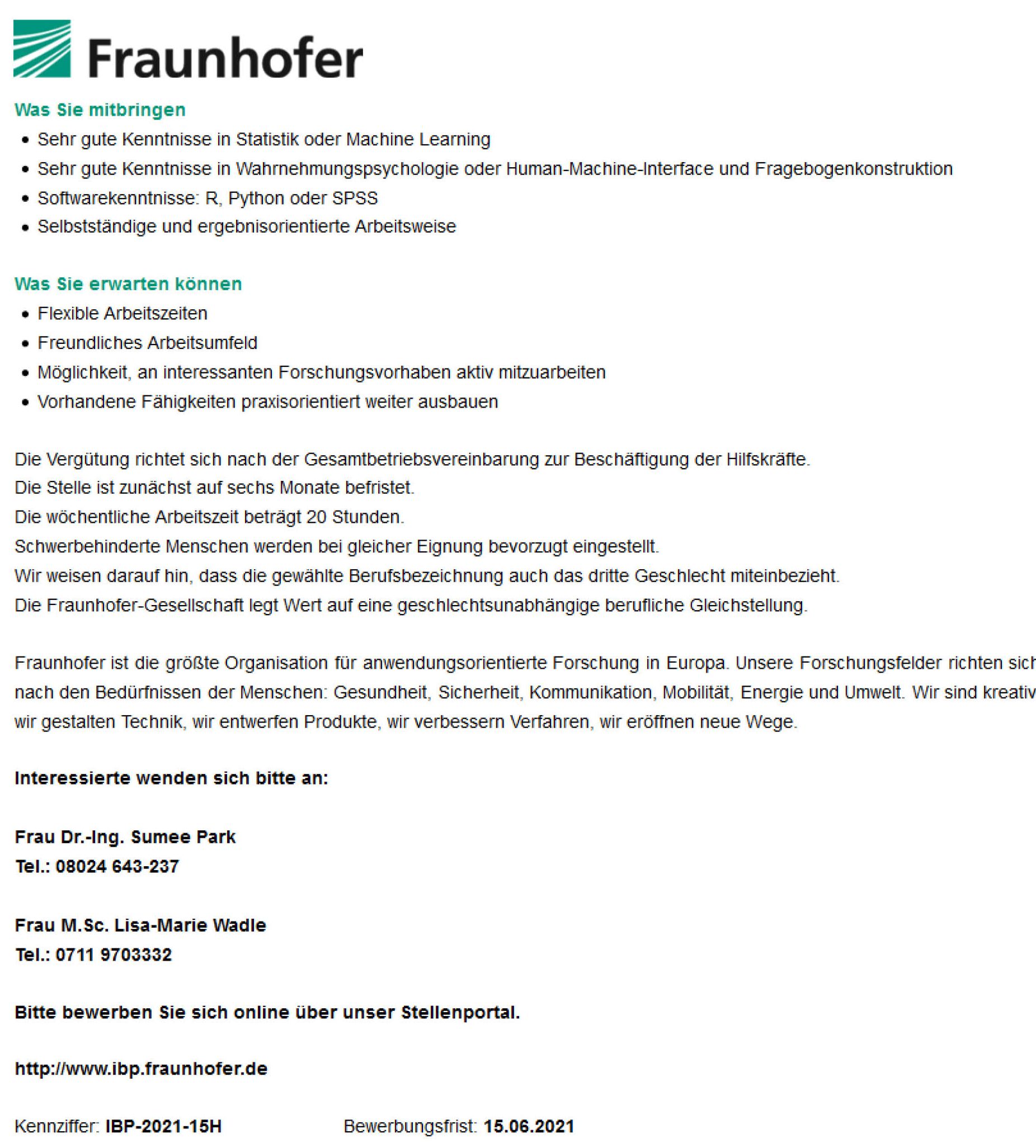
Einladung zum Kolliquium
Dear all,
The ANaP Lab would like to invite you to a virtual talk by Joana Rita da Silva Carvalheiro (University of Minho, Portugal) on Monday, 17 May 2021 at 16:30. In her talk, she will speak about “Unveiling the impact of acute stress on reinforcement learning: A computational and neuroimaging approach”. You can find the abstract and Zoom link below. Please feel free to forward this invitation to anyone that you think may be interested.
We are looking forward to seeing you at our colloquium.
Best wishes,
Yasaman Rafiee
Abstract:
Reinforcement learning is an adaptive process through which individuals learn to make choices that maximise rewards and minimise punishments. This type of learning is driven by prediction errors, which are signalled by phasic dopamine responses when a choice results in a rewarding or punishing outcome different from the expected. Although acute stress is pervasive in modern everyday life and is thought to affect reinforcement learning and dopaminergic functioning, notably, the computational and neural mechanisms by which acute stress affects reinforcement learning remain poorly understood. My PhD work set out to investigate how acute stress impacts the computational and neural mechanisms of reinforcement learning, and how individual differences modulate such impact.
This work endeavoured to answer three outstanding research questions: 1) How does acute stress impact reinforcement learning at the behavioural and computational levels? 2) Does acute stress affect neural signalling of prediction errors during reinforcement learning? 3) Do individual differences in psychopathic traits modulate the impact of acute stress on reinforcement learning and on neural signalling of prediction errors?
Our findings suggest that 1) acute stress impairs behavioural performance towards obtaining rewards and decreases the learning rate for positive prediction errors (doi:10.1016/j.bandc.2020.105657); 2) acute stress blunts signalling of prediction errors, preferentially positive prediction errors, in the dorsal striatum (doi:10.1101/2021.02.11.430640); 3) individual differences in psychopathic traits modulate the impact of acute stress on behavioural performance towards rewards and underlying signalling of prediction errors in the dorsal striatum. Overall, our findings extend behavioural evidence that acute stress impairs reward learning and, importantly, suggest a neurocomputational mechanism behind such impairment — consistent with a neurobiological framework of stress-induced dopamine disruptions. Ultimately, this research contributes to a more complete and coherent understanding of the impact of acute stress on reinforcement learning.
Join Zoom Meeting: https://uni-goettingen.zoom.us/j/97989480319?pwd=blVYTjlzMHVqK29DcGdMY0VkZHRYQT09
Meeting ID: 979 8948 0319
Passcode: 457777
